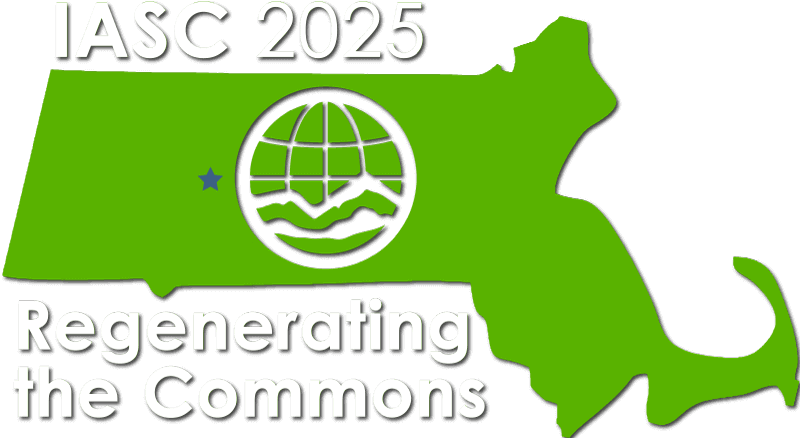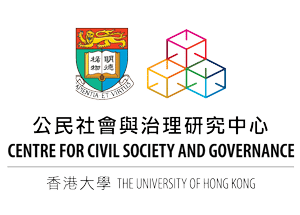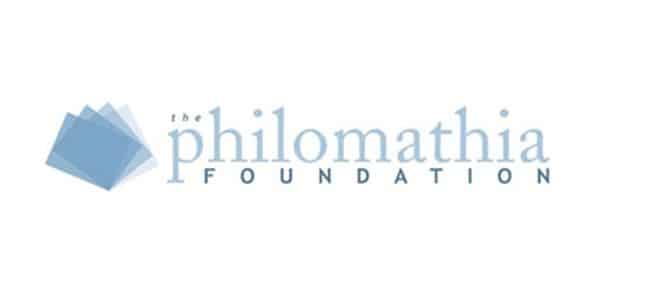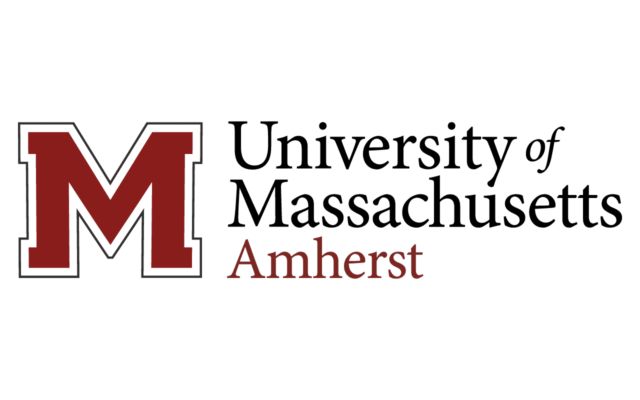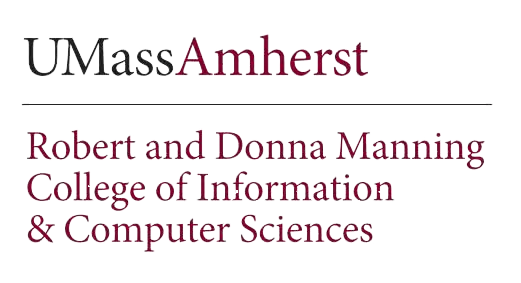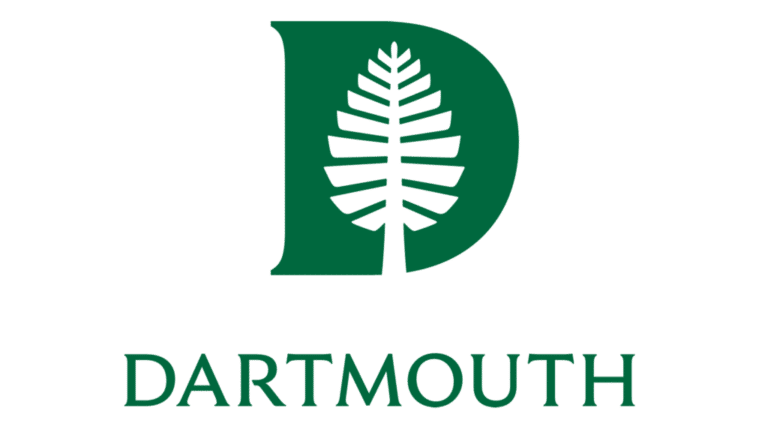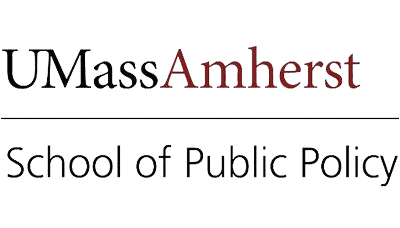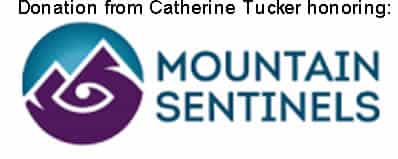Theme
As stated in the welcome section, the overarching theme of the IASC 2025 conference is entitled
“Regenerating the Commons: Addressing Pressing Concerns Through Learning about the Past and Innovating into the Future.”
Commons and Commoning are in constant threat of “enclosure” in places where they are active, and in many locations are forgotten practice entirely or operate with little awareness they exist, such as in many places in the United States.
Consequently, with IASC 2025 located in the northeast United States, we hope tha Commons scholars and practitioners will bring their research and activities to our event University of Massachusetts Amherst to both (1) promote their work and ideas and (2) learn what others are doing all over the world.
Sub-themes
Our conference Program Committee has created an exciting set of conference sub-themes that people can participate in. They include:
Commons scholars, particularly those from the Bloomington School tradition, have a long and rich history of studying various environmental commons such as forests, fisheries, pasturelands, and irrigation systems. These environmental commons have been thoroughly documented and analyzed across diverse contexts, providing a solid foundation for empirical research and theorization on social and environmental governance. Recently, new types of environmental uses and commons have been identified and analyzed, including coral reefs, the atmosphere and the space beyond the atmosphere, the high seas and the deep seabed.
This theme invites submissions that focus on the management of both traditional environmental commons—forests, fisheries, and irrigation systems—and newer and larger-scale environmental commons. We welcome contributions that explore the use, management, distribution, and conservation of environmental commons across different contexts, as well as the interconnections among them. In keeping with the IASC’s foundational principles, a central focus of this sub-theme will be on the theory and practice of building local institutions for governing environmental commons in a changing world.
Program Committee sub-theme members: Praneeta Mudliar, Maria Claudia-Lopez
Global climate change is arguably the most challenging collective action problem of our time, affecting everyone on the planet. It also involves complex dynamics that classic collective action theories struggle to capture, such as power imbalances and disparities in influence. Addressing climate change requires that we consider issues of mitigation, adaptation, and the long-term task of building resilient economies and societies amidst evolving climates and shifting social and technical systems.
In this subtheme, we invite scientists and practitioners to propose presentations on topics including, but not limited to: polycentric approaches to managing climatic commons, carbon markets and carbon offsets, nature-based climate solutions, people-centered and gender-inclusive strategies for adaptation and mitigation, ecosystem restoration, climate-smart agriculture, clean energy cooperatives, collective action and climate resilience, the Earth Regeneration movement, and the power dynamics and contestations in global climate engagements. We seek contributions that connect climate change to collective action and the commons, offering theoretical insights and practical solutions.
Program Committee sub-theme members: Forrest Fleischman, Everisto Mapedza
There is a strong relationship between the study of the commons, collective action, and public policy analysis. Public policy is often justified as a means for governments to incentivize individuals to act in the public interest, which may involve creating new types of commons, fostering collective action, and/or regulating these activities through state mechanisms. Many analyses of commons governance explore the interaction between state and non-state actors, considering both informal norms and formal rules that enable diverse forms of cooperation to address complex social-ecological dilemmas, often referred to as state-reinforced self-governance.
This subtheme encourages participants to submit presentation abstracts that explore a range of topics related to commons governance, the State, and public policy. Potential topics include institutional design, polycentric governance, co-management (e.g., co-provision and co-production), and interventions that facilitate diverse outcomes at the intersection of public policy and the commons. We are particularly interested in submissions that advance policy theory, methodology, or practice.
Program Committee sub-theme members: Daniel DeCaro, Tanya Heikkila, Ilkhom Soliev
At the broadest level, our willingness to give time and money for the public good creates a commons that forms the foundation of civil society. This willingness to give manifests itself in many different governance arrangements, including international nongovernmental organizations, nonprofit service providers, philanthropic institutions, social enterprises, and many others. Often these operate outside the realm of either the market nor the state. Some of these institutional arrangements rely on donor appeals, giving traditions, or endowments, while others rely on government funding to deliver services. This theme explores the institutional arrangements for giving time and/or money and how they help or hinder civil society. We invite dialog between and among scholars and practitioners focusing on commons, commoning, and governance arrangements for giving for the public good.
We welcome submissions that explore a range of institutional arrangements for giving time and/or money, including diverse and novel formal and informal institutions used to govern philanthropic and voluntary resources. Additionally, we welcome scholarship that considers how current institutions aggrieve or deplete such resources. Contributions that explore how giving is expressed through various institutional arrangements, both historical and contemporary, are highly encouraged. The theme leaders welcome diverse theoretical and methodological approaches.
Program Committee sub-theme members: Brenda Bushouse, Brent Never, Anas Malik
Knowledge Commons has become a standard and growing sub-theme at IASC conferences, and this continues in IASC 2025. The Knowledge Commons refers to fora that facilitate the sharing of data, information, and technical and cultural knowledge. This type of commons includes shared scientific research, data repositories, cultural heritage, and created or creative works, including knowledge commons that operate as part of or adjacent to natural resource commons.
In this sub-theme we welcome submissions on a wide variety of topics including: open scholarship; open source software and hardware governance; open educational resources; open licensing; open data and data governance (including data pools, data trusts, data privacy and data security); internet commons and platform cooperativism; Smart Cities; commons governance of AI and other intelligence-generating systems; open science/science commons (including sharing of information in health and medicine); indigenous knowledge and science; and the sharing, preservation or protection of cultural and heritage commons. Other related areas not listed here are also welcome.
Program Committee sub-theme members: Melanie Dulong de Rosnay, Brett Frischman, Michael Madison, Kathy Strandburg, Christine Turner
Many commons scholars, especially those engaged in field research, collaborate with local communities, Indigenous Peoples, community-based organizations, NGOs, and other non-academic partners to develop and implement their research, advancing both theory and practice. This co-created work has significant implications for the knowledge and information generated. In this subtheme, we will delve into the intricacies of such collaborations, asking the following types of questions: What goals are pursued and achieved, and for whom? How are these collaborations perceived by different partners, and how can they be improved? What challenges and opportunities arise in these collaborations? How can successful collaborations be replicated or scaled up?
We welcome contributions from scholars and practitioners interested in exploring transdisciplinarity across various contexts, experiences, and perspectives. Themes of interest include, but are not limited to: methods, challenges and limitations of transdisciplinary work, co-production in community-engaged work and science-policy-society engagements, the dynamics of participation, the influence of power relations and asymmetries, and the impact of transdisciplinary commons research on sustainability and other important outcomes.
Program Committee sub-theme members: Graham Epstein, Mateja Nenadovic, Ida Djenontin
The study of the commons has always benefited from complementary use of a variety of methodological techniques. Advances in the computer-based collection, processing, and analysis of data continue to bring rewards to methodological experimentation and innovation. Simultaneous advances in conceptually grounded institutional analysis approaches, such as the Institutional Grammar, support the integration of theory with these methodological techniques. Through this theme we welcome submissions that are applying various methodological techniques (e.g., qualitative, quantitative, and computational) to advancing institutional science. Computational methods include, for example, automated coding procedures, computer-supported qualitative research, digital commons, machine learning, artificial intelligence, and computer simulation. Also welcome are submissions that apply the Institutional Grammar in concert with these techniques.
Program Committee sub-theme members: Seth Frey, Saba Siddiki
The Indigenous commons refers to lands, resources, and cultural traditions that are collectively owned and implemented by Indigenous communities. Such practices are rooted in traditional Indigenous ways of living with the natural environment, which emphasize communal stewardship, sustainability, and respect for the natural world. We welcome submissions on various topics related to the commons and Indigeneity, including traditional human-environment relationships, ancestral ecological knowledge, sacred spaces, geopolitical processes, and political alliances among Indigenous Peoples, as well as multi-stakeholder processes. Submissions that explore the impacts of these topics on Indigenous peoples, their sovereignty, and self-determination are also welcome, as are those that examine different ontological views on the commons and the institutions Indigenous communities have created for its management, both past and present.
Program Committee sub-theme members: Deborah Delgado Pugley, Juan Pablo Sarmiento, Elke Kelner
There is now a well-established literature and movement to apply a critical lens to commons analysis. This approach emphasizes the effects of power and considers the impact of larger social, economic, and political structures. Power dynamics, inequality, and environmental justice have become central to this discourse. A growing body of literature from this perspective has pointed to the ways in which the commons are produced and sustained in relation to historic and geographically-varying processes. These broader influences have been shown to shape the conditions that either promote or hinder local collective action. Topics in this subtheme include queering the commons; postcolonial /anticolonial/decolonising ideas around the commons; Black and Indigenous theories around the commons and commoning; subaltern/Global South perspectives on the commons; feminism and the commons; ableness and the commons; political ecology and the commons, and anarchist and communist theorizations of the commons. The theme leaders encourage contributions from a diverse group of scholars, including early career researchers and scholars from the Global South.
Program Committee sub-theme members: Lavanya Suresh, Diana Ojedo, Prakash Kashwan
The practice of commoning involves the collaborative management of shared resources by a community, guided by principles of mutual aid, sustainability, and equitable access. Commoning is widely seen as a response to privatization, technocentric approaches and historical enclosures of the commons, which continue today through processes like large-scale land grabs and diversion of commons for alternate ‘developmental’ usages. Commoning as a practice challenges traditional power structures and promotes collective, inclusive decision-making. It emphasizes the interconnectedness of social and ecological systems, advocating for community-driven governance of shared resources that enable both human and environmental well-being.
Examples of commoning include community governance of forests, pastures, water bodies, gardens, community land trusts, time banks, and open-access publishing and data sharing. This theme particularly welcomes submissions from practitioners and scholars collaborating with practitioners to analyze the impacts of commoning initiatives and explore the practice of commoning in their specific contexts, especially through the lens of gender equity, ecological well-being, and social justice.
Program Committee sub-theme members: Kiran Singh, Ted Rau, Cecile Green
According to the latest United Nations projections, over 68% of the world’s population is expected to live in cities by 2050. Cities present a landscape of opportunities, challenges, and inequities, within which urban commons play critical roles in providing social and natural infrastructure that sustain lives and livelihoods. Urban commons refer to resources within cities that are formally or informally managed by diverse communities for shared use and benefit. These resources can be physical spaces, services, and digital platforms accessible to community members. Urban commons are a significant source of social and ecological development but also have the potential to exacerbate social exclusion.
We invite submissions that explore various aspects of urban commons. Topics of interest include, but are not limited to, the history of urban commons, global and regional perspectives on urban commons, Ostromian, critical, and legal perspectives, urban commoning practices, and case studies of urban commons initiatives such as collective urban housing, community gardens, urban forests, pedestrian zones, public and street art installations, mass transit systems, and bike-sharing programs.
Program Committee sub-theme members: Hita Unnikrishnan, Albert Mumma
The commons represents a diverse array of fields and perspectives, and we acknowledge that the themes selected for IASC 2025 do not fully capture the breadth of interests among commons scholars. Moreover, the scope of commons work extends beyond scholarly publications. We invite submissions of both scholarly and practice-based work on aspects of the commons that may not align closely with our primary conference themes. We also welcome contributions that fit within the overarching theme of the commons but may not conform to the traditional framework of an academic conference. Examples include visual arts, performance arts, audio works such as podcasts and soundscapes, game-based activities, virtual reality experiences, and more.
Program Committee sub-theme members: Michael Cox, Sergio Villamayor-Tomas
